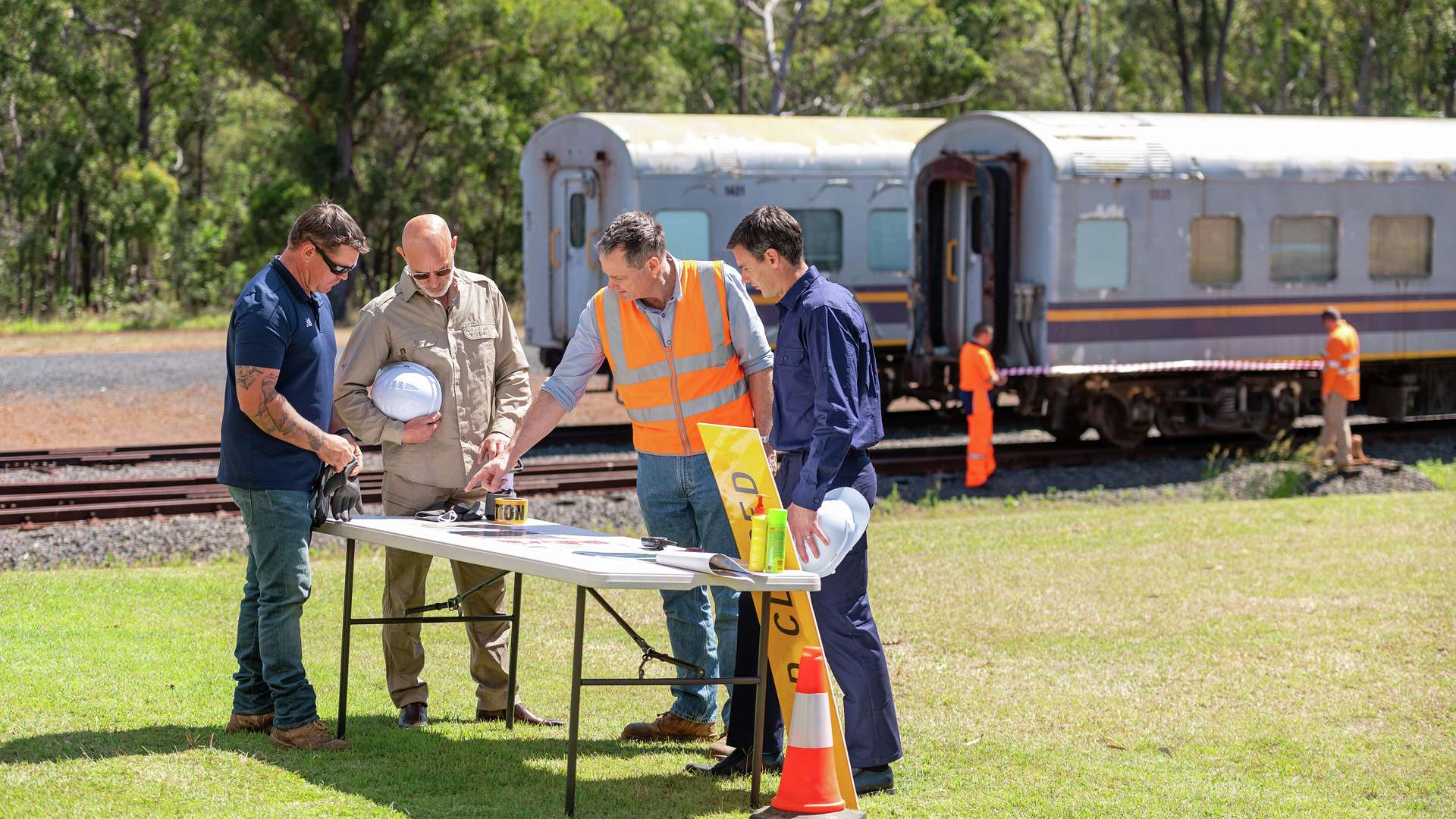Master of Emergency and Disaster Management

Overview
Advance your career in emergency and disaster management, or gain the skills and knowledge needed for a career in this rewarding field with the Master of Emergency and Disaster Management. Throughout your studies, you will explore current and emerging trends in national and international approaches, as well as the key concepts and perspectives that underpin contemporary emergency and disaster management practice.
The Master of Emergency and Disaster Management recognises the changing nature of emergency and disaster management in Australia and the important role research and evidence-based practice play in underpinning contemporary perspectives and approaches.
As a student in this course, you will draw upon the multidisciplinary nature of emergency and disaster management to explore current and emerging trends in national and international approaches, as well as the key concepts and perspectives that underpin contemporary emergency and disaster management practice.
This course initially introduces you to the fundamental concepts and frameworks that underpin the effective management of emergencies and disasters and helps you develop a comprehensive understanding of the nature of hazards and disasters. You will be introduced to the key stakeholders involved with emergency and disaster management, explore the historical and contemporary principles, policies, and legal frameworks guiding the field of practice. The unit will explore local and global concepts of emergency and disaster management and the models, systems and processes required to effectively mitigate, prepare, respond and recover from various disasters.
This course draws on expertise from various disciplines in the university, such as occupational health and safety and public health, to ensure a holistic approach to emergency and disaster management. You will gain skills in leadership, crisis communication, risk management and strategic operations, which you will need to meet and fulfil the requirements of employment in a disaster and emergency role.
This emergency and disaster management qualification is relevant to various multidisciplinary settings, including emergency service and response agencies, public safety, humanitarian aid, governmental and non-governmental organisations, nationally and internationally.
Career Opportunities
This course is aimed at people wanting to enter into or who are working in emergency and disaster management that wish to change or advance their careers in this area. This may include people who are in the public safety or emergency services, volunteer groups, healthcare professionals, military personnel, professionals working in private, government, non-government and community-based organisations who play a role in emergency and disaster management; and those with a personal and/or professional interest in the field.
Possible future job titles:
Emergency management officer, Emergency Management Coordinator, Advisor Emergency Management, Coordinator Emergency Management, Emergency Management Work Health Safety Coordinator, Senior Director/Director/Consultant - Safety, Security And Emergency Management, Disaster Manager, Emergency Management Project Officer, Emergency Planner, Emergency Management Trainer, Disaster Planner, Disaster Recovery Specialist, Disaster Resilience Officer, amongst many others.
Structure & Availability
The course structure and available locations can change depending on when you want to study. You can choose the intake that best suits you in the drop-down menu below.
Available Locations
Your Course
You must complete 12 units (72 credits):
- 1The core structure (8 units)
- 2Three level-8 electives
- 3One level-9 elective
Unit Details
The units you'll study are listed below. Click on a unit to learn more.
Course Planner
To help you plan your studies and see which unit comes first, if one unit should be completed before another and when you will study each unit, check out our course planners.
Additional Information
If you have completed prior study relevant to units within this course, you may be eligible for credit for your past studies. Learn more about credit and recognition of prior learning.
Requirements
To Be Eligible
For your application to be considered, you must meet the following entry requirements.
During Your Study
While not needed to apply, you'll need to meet the following requirements throughout your studies.
Fees & Scholarships
Indicative First-Year Fee
The Indicative First-Year Fee is the approximate cost of enrolling in this course for one full-time academic year (eight units over two terms) depending on the type of place you are offered, for example, a Commonwealth Supported Place (CSP) or Full Fee Paying (FFP) Place. The indicative fee provided should be used as a guide only. Your actual fees may vary, depending on the units you select to study and your study load. Check the cost-per-unit spreadsheet available on our fees webpage for the approved unit fees. Fees are reviewed each year and are subject to change.
You may be eligible for FEE-HELP, an Australian Government loan scheme that helps eligible students pay their tuition fees. Provided you meet the FEE-HELP eligibility criteria, you can choose to use FEE-HELP to cover all or part of your tuition fees.
Learn more about paying for university or view the FEE-HELP information booklet on the Australian Government’s Study Assist website.
Part of your course costs will include Student Services and Amenities Fees (SSAF). SSAF is charged in addition to your student contribution or tuition fees and is used to help enhance your study experience. There may also be other costs as part of your studies, such as textbooks, technology expenses, travel expenses, professional certifications, uniforms, or vaccinations. Explore other study costs.
How to Apply
How to Apply
Check what you need to do to apply to study this course.
Your Application Options
Follow These Steps
Extra Admission Information
Learn about the assessment of applications and everything you need to know about receiving and accepting an offer to study with CQU.
Start Your Application
Use the Apply button below to access our Apply Online portal and start your application.
